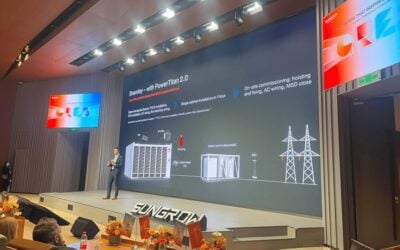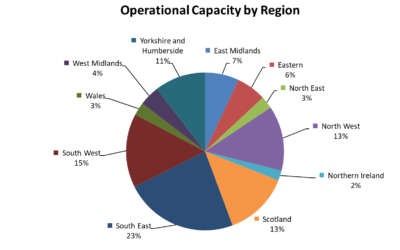
The renewables investment community “needs to come to grips” with merchant risk after a decade of being “spoiled” by government-backed subsidies for wind and solar.
That was the view from the opening session of day two of Solar & Storage Live, which welcomed a panel of energy storage and finance representatives to discuss the availability of finance in the energy storage sector.
Enjoy 12 months of exclusive analysis
- Regular insight and analysis of the industry’s biggest developments
- In-depth interviews with the industry’s leading figures
- Annual digital subscription to the PV Tech Power journal
- Discounts on Solar Media’s portfolio of events, in-person and virtual
Or continue reading this article for free
Following a decade of subsidy-backed development in the renewables sector, Roberto Castiglioni, managing director of Argonaut Power, said investors had “got lazy”.
“In my opinion they have been spoiled for the last ten years with government subsidies for solar and wind. It was normal to get 70% of your total revenue backed by the government through Renewables Obligation or feed-in tariffs – those were the good old days. But now it’s time to get back to merchant risk,” he said.
Stephan Marty, general manager storage & international DSR at Kiwi Power, a services aggregator with a background in demand side response (DSR), agreed that the investment community, including banks, had become used to long term returns offered by subsidies and that it now needed to change its expectations for what was on offer.
“We don’t really see the banks coming through, at last from our point of view, which is a lot to do with merchant risk. It’s understandable if you think where the industry has come from as a lot of people in this space come from solar and are used to long term government backed contracts; quite safe and bankable,” he said.
“The industry now needs to come to grips with much more merchant risk and shortness of contracts.”






